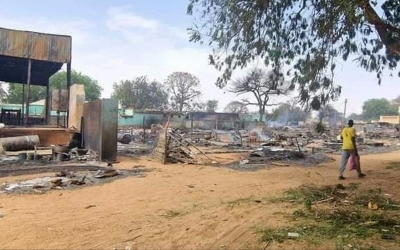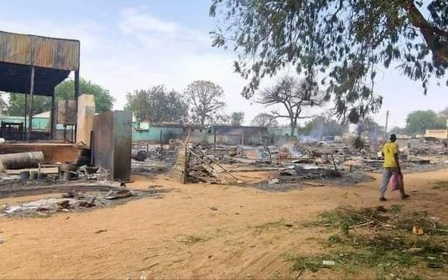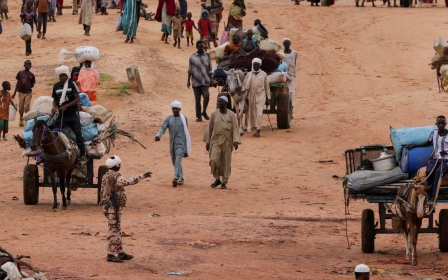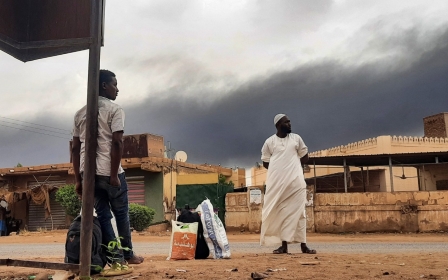Sudan: US sanctions brother of RSF chief Hemeti
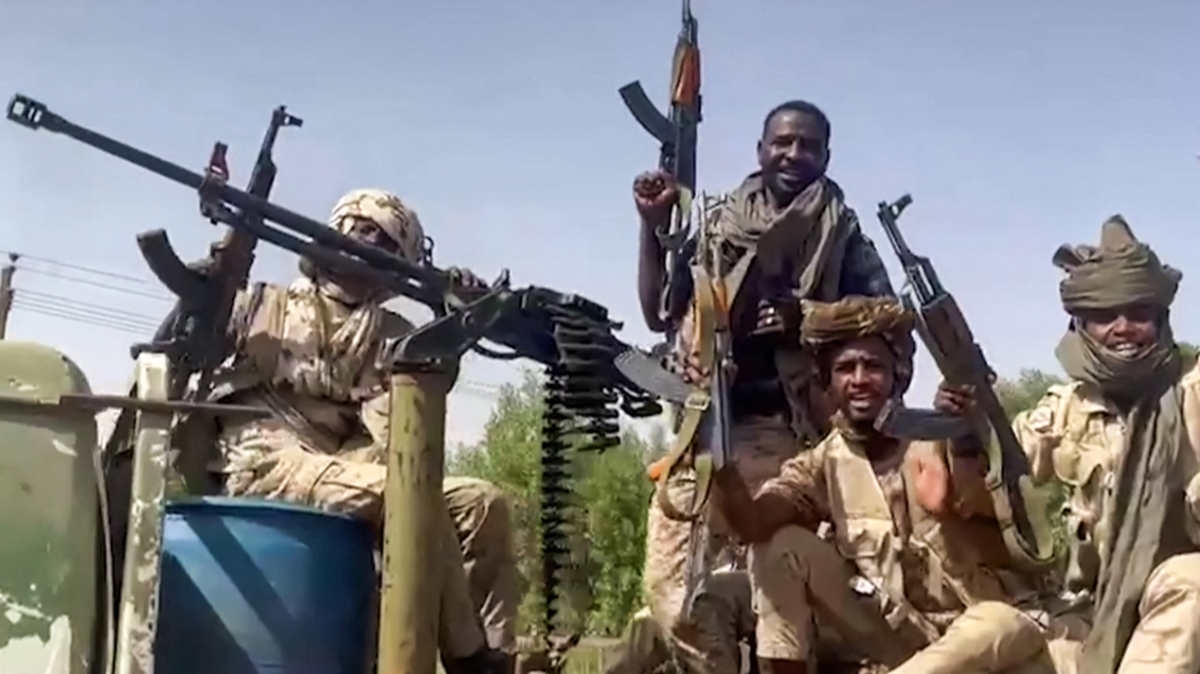
The United States on Wednesday sanctioned the deputy leader of Sudan's Rapid Support Forces (RSF), Abdul Rahim Hamdan Dagalo, the brother of the paramilitary group’s commander, in the first case of the US targeting an individual actor in Sudan’s conflict.
Dagalo is being sanctioned for his involvement in human rights abuses that the US said include “the massacre of civilians, ethnic killings, and use of sexual violence”.
“Today’s action demonstrates the Treasury’s commitment to hold accountable those responsible for serious and extensive human rights abuses in Sudan,” US official Brian Nelson said in a statement.
“The United States urges both sides of the conflict to cease the hostilities and violence perpetuating Sudan’s dire humanitarian crisis,” he added.
On Thursday, the RSF issued a statement describing Washington's decision as "purely political", and called it "regrettable, shocking and unfair".
The paramilitary said the US was ignoring the "egregious violations" committed by its enemy, the Sudanese Armed Forces (SAF), and called into the question the role Washington is playing as a mediator in the war.
More than 4,000 people are believed to have been killed and another 4.5 million displaced since fighting broke out in April.
The conflict pits the Sudanese army, led by General Abdel Fattah al-Burhan, against the paramilitary RSF, under Mohamed Hamdan Dagalo, the general better known as Hemeti. Much of the fighting has been concentrated in Khartoum.
On Wednesday the activist group Emergency Lawyers said that at least 32 people were killed in artillery strikes by the Sudanese army in a neighborhood in Khartoum's twin city, Omdurman.
The US announced its first round of sanctions on Sudan in June after ceasefire talks in Jeddah, Saudi Arabia, collapsed.
The move targeted four entities; two connected to the army and two tied to the RSF. One of the firms was a Khartoum-based gold-trading entity headed by Abdul Rahim Dagalo, the other was a UAE-based firm controlled by one of Hemeti's younger brothers, Algoney Hamdan Dagalo.
The US also applied visa restrictions to officials from the army and RSF but didn’t specify who was targeted.
Darfur fighting
Wednesday's sanctions come as fighting escalates in war-ravaged Darfur, an impoverished region that witnessed violence in the early 2000s against non-Arab residents which has often been described as genocidal.
The Dagalo family has a notorious history in Darfur. Hemeti was a commander of the Janjaweed, a fearsome collection of Arab militias used by former ruler Omar al-Bashir’s government against non-Arab rebel groups and civilians in the area. Former Janjaweed fighters fill the ranks of the RSF.
Today, fighting between the RSF and the Sudanese army has erupted across Darfur’s five states, with worrying ethnic dimensions. Arab militias allied with the RSF have joined in the fighting, and in response, some members of the Black African Massalit community have armed themselves.
The fighting in cities such as Al-Geneina has been catastrophic with widespread killings, markets and homes looted, and women and girls targeted with sexual violence, Middle East Eye has previously reported.
Meanwhile, cities such as Nyala in Darfur have been turned into ghost towns as Sudan’s warring parties fight for control of the border region with South Sudan and the Central African Republic (CAR).
The US State Department placed RSF general and West Darfur sector commander Abdul Rahman Juma on its blacklist for what it called "his involvement in a gross violation of human rights".
"According to credible sources, on June 15, 2023, RSF forces led by General Juma kidnapped and killed the governor of West Darfur, Khamis Abbakar, and his brother," the State Department said.
It said the murder came just hours after Abbakar publicly condemned the RSF.
In its statement on Thursday, the paramilitary described the allegations levelled at Juma as "shameful".
Middle East Eye propose une couverture et une analyse indépendantes et incomparables du Moyen-Orient, de l’Afrique du Nord et d’autres régions du monde. Pour en savoir plus sur la reprise de ce contenu et les frais qui s’appliquent, veuillez remplir ce formulaire [en anglais]. Pour en savoir plus sur MEE, cliquez ici [en anglais].


